As the award winning movie, THE GREEN BOOK makes its debut in Jamaica, more information is emerging about Donald Shirley’s Jamaican roots including his virtuoso performance at the Ward Theatre in 1956 and the award of a Bronze Musgrave Medal by the Institute of Jamaica in 2012 in recognition of his contribution to music.
It seems difficult to keep Jamaica out of the biggest events on the world’s stage, whether its in sports, music, literature and even American politics. Our latest ‘Big Up’ is in show business and on Hollywood’s biggest stage. Last Sunday night’s Golden Globe awards was no exception when the Green Book starring Mahershala Ali walked away with awards for “Best Motion Picture”, “Best Screenplay” and “Best Performance by an actor in a Supporting role.” So how did Jamaica figure in all these awards?
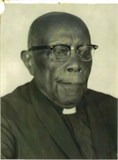
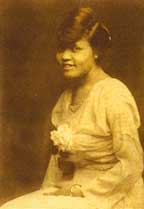
Simple. The movie the Green Book is based on the life of Donald Shirley, the enigmatic cult musical figure who was born in the USA of Jamaican parents. Edwin Samuel Shirley and his wife Stella Gertrude Shirley, emigrated from Jamaica to the USA in 1914, having lived in Spanish Town, St Catherine and perhaps latterly on Princess Street in Kingston. Father Edwin became an Episcopal priest while mother Stella, in her relatively short life was a teacher. Together they bore four sons who all turned out to be brilliant in their own right – two as doctors, one a sociologist and arguably the most gifted was Donald Walbridge Shirley, born January 29, 1927 in Pensacola, Florida. If you had never heard of Don Shirley before seeing the Green Book or listening to one of his compositions, don’t feel too badly. Mahershala Ali had never heard of him either before he read the script for the movie!
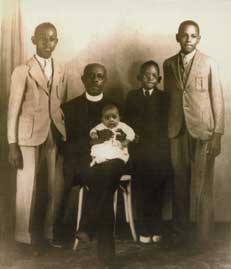
There is no official biography of Donald Shirley and details of the Shirley family history during their Jamaican years are sketchy despite the establishment of a Shirley Family Association in 1978. What we do know is that Donald (who later became known simply as Don) was a genuine child prodigy who began playing the piano at the age of two-and-a half years, tutored by his Jamaican mother and having his first public performance at the age of 3! Shirley’s career was as phenomenal as it was unconventional. His formal musical education began at age nine when he was sent to study theory at the Lenningrad Conservatory in Russia and later at the Catholic University of America in Washington DC. At age 18 in 1945, Shirley made his concert debut with the famous Boston Pops Orchestra and his first major composition was performed by the London Philharmonic Orchestra in 1946.
Don Shirley was simply a man before his time. Had he not been a black man Shirley would perhaps have become one of, if not the greatest classical musician of his generation. According to Wikipedia he wrote organ symphonies, piano concerti, a cello concerto, three string quartets, a one-act opera, works for organ, piano and violin. He played Gershwin’s “Rhapsody in Blue’ at La Scala in Milan; accompanied Duke Ellington at Carnegie Hall; the Alvin Ailey Dancers at the Metropolitan Opera and played with the New York Philharmonic and with the Minneapolis Symphony. Composer Igor Stravinsky declared Shirley’s “virtuosity is worthy of Gods” and Sarah Vaughn declared that “ he had the most glorious sense of shading, phrasing and balance I have ever heard”. Did someone mention that he spoke 8 languages?
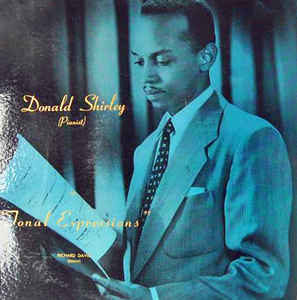
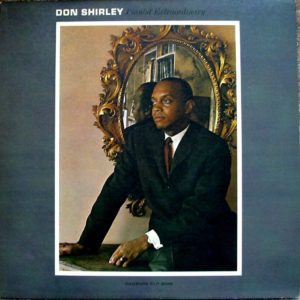
The turning point in Shirley’s career occurred in his 20s when he was advised to pursue a career in popular music and jazz because American audiences were not willing to accept a black pianist on the concert stage. Forced to playing in nightclubs, Don Shirley invented what amounted to his own musical genre, producing music that synthesized popular and classical sounds, blues, classical jazz and even spirituals.
DON SHIRLEY AND THE CONNECTION WITH THE GREEN BOOK
The film takes its name from a travel guide The Motorists Green Book: A Classified Motorist and Tourist Guide Covering the United States, which was first published in 1947. The book or guide helped African American travellers to find places for lodging and dining during the time of segregation in the southern US when Jim Crow laws were still in effect. Don Shirley’s connection or association with the Green Book is based on a real-life trip lasting for a year and a half which Shirley took in the 1960s touring the southern United States and performing for black audiences. The film tells the story of a refined and educated Shirley and the coarse white New York City bouncer whom he employed as his driver and bodyguard for the concert tour through the deep south. In the course of their travels the two men from totally differing backgrounds and outlook develop a friendship that lasted until their deaths a few months apart in 2013. (Shirley died of Heart Disease on April 6, 2013 at age 86.)
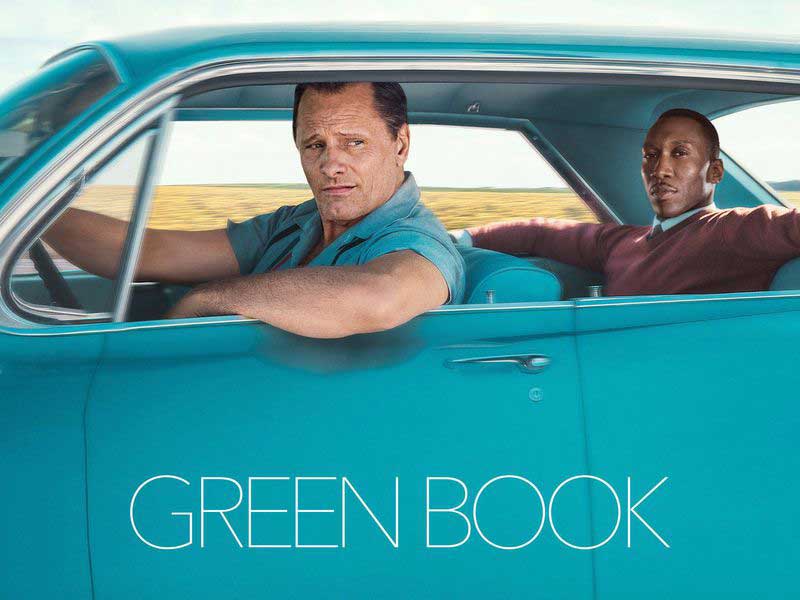
Peter Farrelley, Director of the film in an interview with Billboard magazine is quoted as saying of Shirley:
“He was an original. There was no one like him. He was a brave guy. He was doing these concert tours at a time that you were taking your life into your hands. He wasn’t a revolutionary [but] he knew what he was doing was making a difference.” The truth of Forelley’s words are evidenced by the fact that two men with whom Shirley became friends, Robert Kennedy and Martin Luther King Jr were to fall victims of racist assassins during the period.
RECOGNITION FOR DON SHIRLEY IN JAMAICA
Don Shirley’s Jamaican connections have largely gone unnoticed over the years except for the efforts of Herbie Miller, Director of the Institute of Jamaica’s Music Museum. Dating back to 2012, Miller has been one of the few voices trying to get Shirley and his music noticed and appreciated through articles in the local media and by playing his music on radio programmes and using the programmes to elaborate on Shirley’s creative and academic achievement. In this regard he has been accompanied by Dermot Hussey who has also played Shirley’s music and praised his accomplishments over the years. It was largely through Miller’s efforts and as a result of his recommendation that the Institute of Jamaica awarded Shirley a Bronze Musgrave Medal in 2012. In June of that same year, Miller was also involved in organizing a multicultural music concert in Shirley’s honour which was held at the chapel of the University of the West Indies Mona campus.
Did Don Shirley ever visit and perform in Jamaica?
Oh Yes he did! In 1956 Shirley performed at the Ward Theatre in Kingston and attracted rave reviews. On the occasion of Shirley’s passing in 2013, Miller wrote a eugolistic piece published in the Gleaner headlined ‘A Virtuoso Dies Too Quietly’ observing that there was not much said of it in Jamaica. Summing up the musician’s legacy Miller believes that “Dr Shirley exemplifies the best of Jamaica’s contribution to the innovation of music.”
THE LEGACY OF DON SHIRLEY
It remains a mystery how such a prodigious musical talent as Don Shirley was could have remained in the shadows for so many years to be finally unearthed six years after his death. The answer lies partly with the man himself. Don Shirley was a private man; indeed it is said that when he was told of plans to make his life the subject of the film his only proviso was that it should be done only after his death. But he was also a man of few words. In a November 20, 2018 article in the online magazine Hollywood Progressive, writer Arica Coleman quotes from an album cover written by the President of Cadence Records, Archie Bleyer as far back as 1961 in which he said of Shirley’s musical style that it:
“Does not fit any of the pigeon-hole categories into which show business likes to put people. Although he makes use of the jazz idiom, he cannot be called a jazz pianist. Although he makes use of the blues idiom, he cannot be called a blues pianist. Because he makes use of the jazz, blues and classical idioms and often develops thematic materials in the manner of a serious composer, he cannot be called a popular pianist. Because he devotes his performing and creative talent to ‘music of the people’ –folk songs, blues, spirituals and so-called popular songs – he cannot be called a classical pianist.”
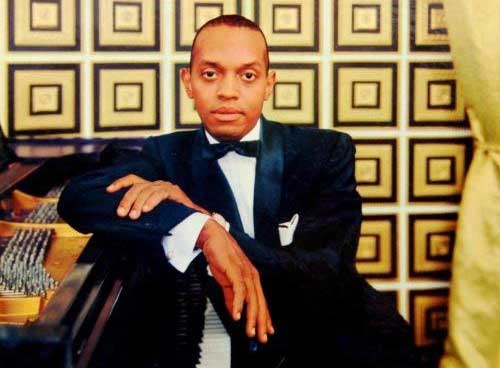
In that same article, Coleman makes reference to a 2000 e-mail that Shirley sent to his fans in which he declared “I don’t like to write. I am not good at it and often cannot find the right words to compose the answers you deserve.” But more telling was the declaration that “ My music has always been hard to place because it does not adhere to any particular style or school”. In that same e-mail, Shirley concluded that it was his refusal to be pigeon-holed that proved most difficult to his musical career. Nonetheless he felt vindicated in his achievement of expressing “the black experience through music with a sense of dignity, that’s all I tried to do.”
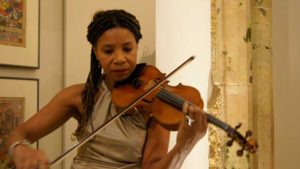
These sentiments in summing up his work resonate well with accomplished British/Jamaican classical musical composer Dr Shirley Thompson who was recently recognized with the conferral of an O.B.E for her own contribution to British music in the 2019 Queen’s New Year’s Honours List and who was also honoured by the University of the West Indies with an honorary doctorate in 2018. Dr Thompson’s mission is to document the Black Experience in and through her classical compositions and could even be regarded in her musical activism as the British/Jamaican equivalent of Don Jamaican/American Don Shirley. Writing to Jamaica Global Online from her base in London, Dr Thompson commented:
SHIRLEY THOMPSON COMMENTS
“Don Shirley’s story as a professional composer and concert pianist is extraordinary in many ways. He was evidently a brilliant man and musical artist with a phenomenal strength of character. That he was able to pursue classical jazz music composition and performance during the period of Jim Crow and at the upper echelons of the industry is beyond belief. Even now, it is near impossible for a black person to ‘make it’ in the classical music industry but he managed to compose large orchestral compositions and have them performed by world-leading orchestras. Incredible and wholly inspiring”.

Jamaica Global Online also reached out to another distinguished Jamaican musician Monty Alexander who was effusive in his praise and admiration for Don Shirley. Dr Alexander who is also a recent UWI honorary graduand had this to say:
MONTY ALEXANDER’S REFLECTIONS
“Donald Shirley was a brilliant man and a fine classical pianist. He was also a Doctor of Psychology. I consider him a genius. When I was playing at Jilly’s (from 1963to 1965) I would walk up to Hickory House which was a nightclub/restaurant that featured the top pianists in jazz and among them I remember seeing Don Shirley. I personally knew him from those years. We spoke on a few occasions about matters pertaining to the piano, music and various piano stylists especially Duke Ellington and Nat King Cole. He spoke about his Jamaican heritage but not at great length. I was flattered that he was complimentary about my efforts as a pianist. He was also very aware of the steel drum and I found out that he had a lot to do with spreading the initial popularity of the steel drum. His music was mostly performances of popular melodies; he created a unique style based on his classical training. The fact that the great Duke Ellington requested of him to perform one of his extended pieces at Carnegie hall speaks of the great respect that was given to Don Shirley by the best of the musicians’ community. Certainly he never received his due by the community at large.”
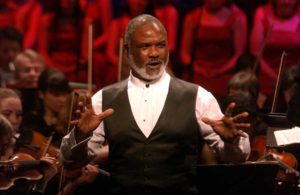
SIR WILLARD WHITE,
“Don Shirley, a true son of Jamaica. Don Shirley was obviously a man who found he did not fit the existing mould and realized that the validity of his inspiration as an individual can and needed to be expressed through his musical artistry. Music, the breaker of barriers. Don Shirley’s inspirations are alive and I wish that as he lived, more of Jamaica could have been aware of his unique and inspiring life. May the Resonance continue”
Sir Willard White, Jamaican operatic bass baritone.
Donald Walbridge Shirley (1927-2013) Jamaican/American musical genius. Now we know.
PLEASE SHARE THIS ARTICLE


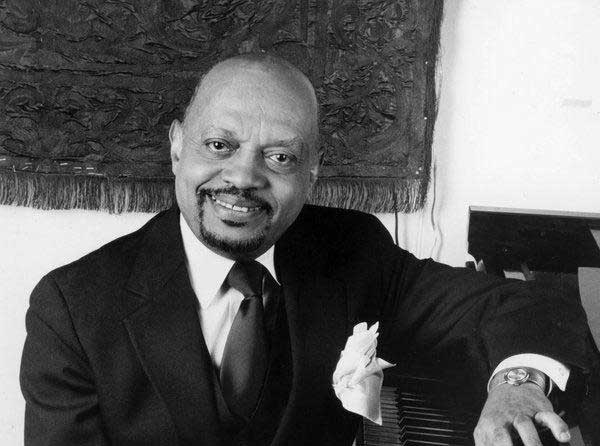
1 comment
WOW. All thinking and proud Jamaicans need to subscribe to this
Comments are closed.